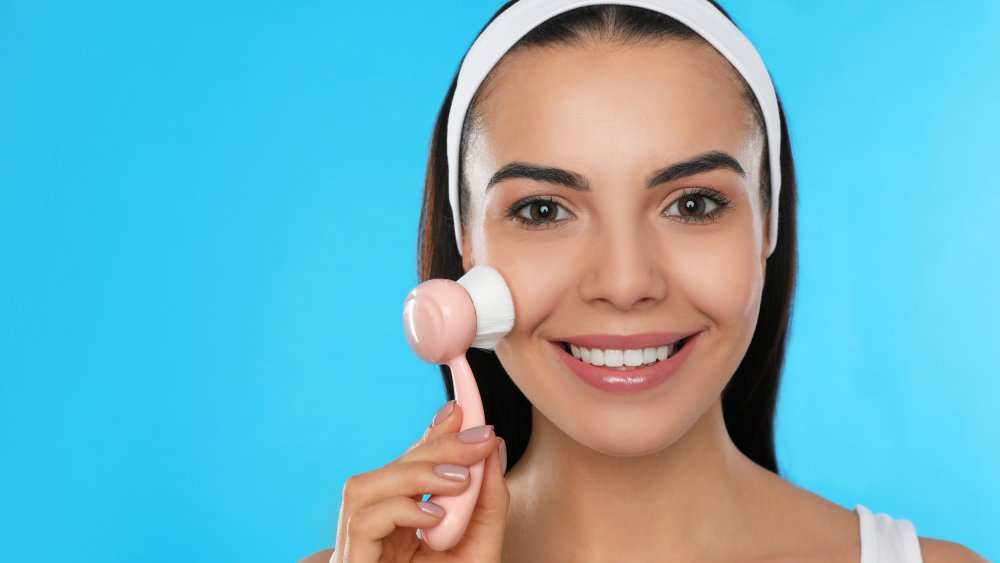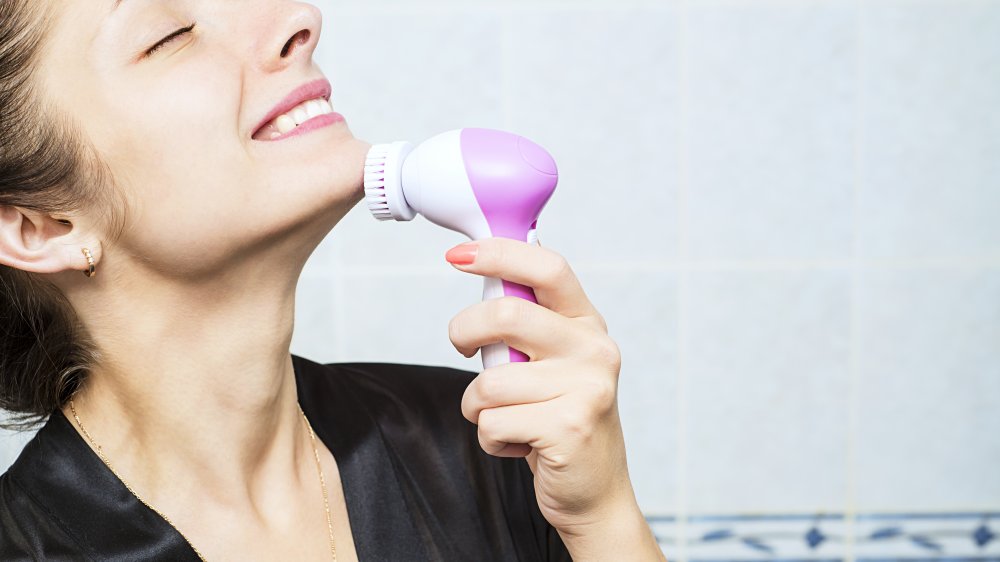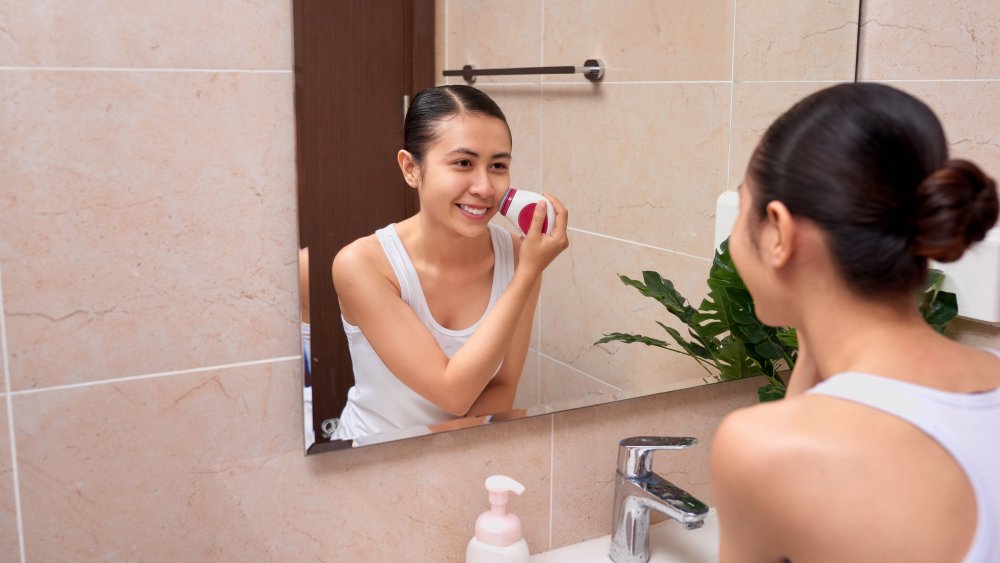Are Facial Cleansing Brushes Good For Your Skin?
Facial cleansing brushes are all the rage right now, but even though they might save us a lot of time in the evenings when we're too tired to properly clean our face, there's still a worry that these new exfoliation tools might be doing more harm than good. Nobody is suggesting foregoing cleaning your face altogether, but surely something that potentially causes breakouts or reddening of the skin can't be all good, right?
With so many competing arguments jostling for attention, it's difficult to know who to listen to, but whether or not you use a facial cleansing brush might come down to nothing more than your skin type and preference for brush over fingers.
Facial cleansing brushes can have negative effects
"Too much of anything is never a good thing," skincare line creator Dr. Dennis Gross told HuffPost. "Overuse [of face cleansing brushes] can lead to broken capillaries, excessive dryness, irritation, redness, and sensitivity." It's important to note if you experience any of these reactions, you'll need to change up your routine or even stop using the brush completely. Dermatologist Ariel Ostad agreed, warning, "Any exfoliation treatments performed at home should always be prescribed by your doctor or practitioner to avoid side effects or reactions."
If you're breaking out a lot after using your cleansing brush, keep in mind that it needs to be cleaned and maintained to kill bacteria. Likewise, don't share it with anybody else (gross) or use it with another exfoliator, as this will irritate your skin. In a piece for Get the Gloss, medical director of The Skin Energy Clinic, Dr. Terry Loong, notes that cleansing brushes shouldn't be used by those with sensitive skin, psoriasis, eczema, broken skin, or any other skin conditions.
Incorporating a facial cleansing brush could enhance your exfoliation routine
However, Abigail James, facialist and well-being expert argued that facial cleansing brushes are actually great and they can really enhance your beauty routine. James recommends using them at the end of the day only, to ensure makeup is properly removed, but for those with sensitive skin, every other day is fine. She utilizes two brushes, one to dry brush and the second to clean, and alternates for morning and evening cleansing. Regardless, Dr. Long recommends cleansing brushes for thicker skin types only, as those tend to be less sensitive, noting she opts for a soft bristle, as firm brushes can be too harsh.
If you're still not convinced, or concerned about how cleansing brushes may impact your skin, a good alternative according to Dr. Gross is calming products containing green tea extract. "It soothes the skin and studies show it can help prevent skin cancer," he shares. Likewise, such products should alleviate redness and reduce inflammation if your face needs some TLC.


